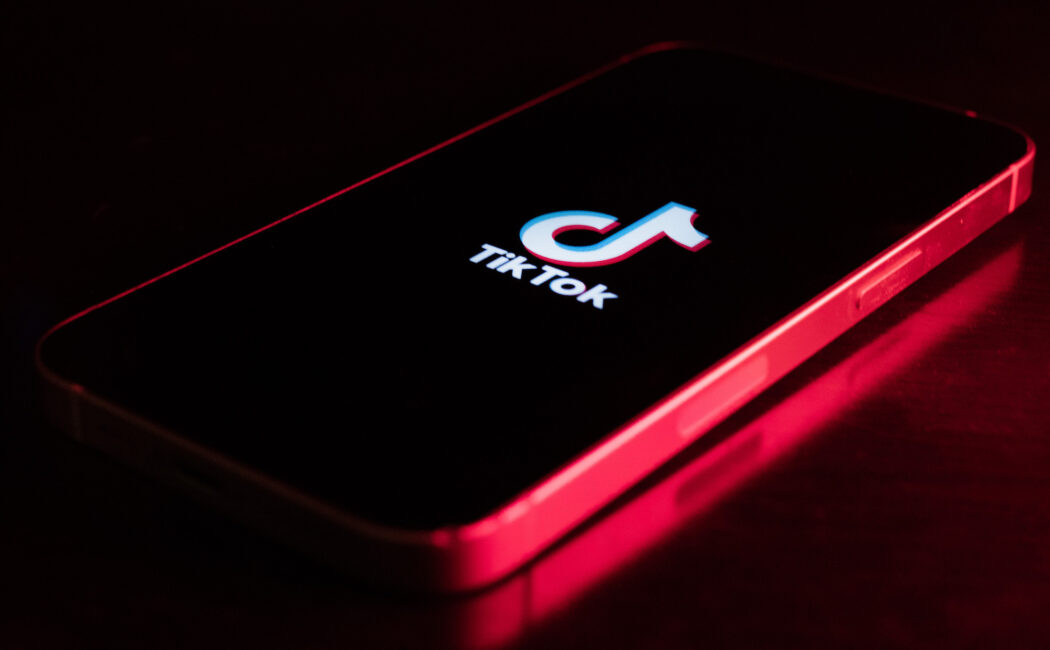Governor Cox issues new executive order to ban TikTok on state devices
On Dec. 12, 2022, Gov. Spencer J. Cox issued an executive order prohibiting the use of TikTok on all state-owned electronic devices, effective immediately.
The news release announcing the order defined such electronic devices as mobile phones, laptops or any tablets. The statement said state employees with these state-owned devices may not download the TikTok app or access the TikTok website.
TikTok, launched in the U.S. in 2018, is a social media app that allows users to watch and create short videos. The app is owned by a Chinese technology company called ByteDance.
According to the order, TikTok has over 100 million users in the U.S. Because it is owned by a Chinese company, it raises security concerns.
“Chinese national security laws allow the Chinese government to compel companies headquartered in China to provide it with data, which may include the personal data, intellectual property, or proprietary information of users in the United States and Utah,” the order states.
The order also mentioned ByteDance has refused to stop sending data to China or China-based employees.
The ban has been put into effect in hopes of preventing the Chinese government from obtaining confidential information about Utah agencies and/or employees.
“The app is gaining in popularity and the security concerns surrounding TikTok have come to light more recently,” Emma Williams, a public relations officer for Cox, said in an email to the Statesman. “The company has been given the opportunity to improve their security and they have not.”
The executive order also mentioned a list of institutions who are exempt from following the guidelines of the ban. These include: an institution of higher education, the Utah Board of Higher Education, the Utah State Board of Education, an independent entity, the Attorney General’s Office, the Office of the State Auditor, the Office of the State Treasurer, the legislative branch and the judicial branch.
Utah State University is an institution of higher education and therefore may still have university TikTok accounts and set their own policies.
However, when the order was initially issued, USU social media director Matthew Gerrish ordered a temporary pause on all USU TikTok accounts, asking them to cease posting until given further clarification.
After consulting with USU legal counsel and Utah System of Higher Education, Gerrish determined USU TikTok accounts were OK to use as long as personal devices were being used rather than university-owned devices.
Gerrish explained TikTok has been a big part of USU student engagement and believes it will continue to be beneficial going forward.
“TikTok has been a valuable component of our social media strategy, as it provides an avenue for the institution to highlight the best of student life at USU,” Gerrish said. “It’s an extra touch point to help Aggies feel more connected to their peers.”
Utah isn’t the first state to issue a ban on the app.
According to a map from Government Technology published on Dec. 14, 2022, 19 states had a ban on all state-owned devices, four states had a ban on some state-owned devices and Indiana had filed a lawsuit against the app.
The Indiana state government website explains Indiana Attorney General Todd Rokita filed two lawsuits against TikTok: one for luring “children onto the platform through a variety of misleading representations indicating that the app contains only ‘infrequent/mild’ sexual content, profanity, or drug references — when in reality the app is rife with extreme examples of such material,” and the second for “reams of highly sensitive data and personal information about Indiana consumers and has deceived those consumers to believe that this information is protected from the Chinese government and Communist Party.”
More recently, two more states, in addition to the 19 from the map, have recently issued TikTok bans on state devices.
Business Insider reported New Jersey Gov. Phil Murphy announced a cybersecurity order on Jan. 9, and on the same day, Ohio Gov. Mike DeWine issued an executive order.
In a statement to Insider, TikTok responded to the orders and said, “We’re disappointed that so many states are jumping on the political bandwagon to enact policies that will do nothing to advance cybersecurity in their states and are based on unfounded falsehoods about TikTok.”
Students like University of Utah senior Jarin Mandros, who said he spends over two hours a day on TikTok, don’t seem to be worried about their personal information being released to ByteDance.
“They will get it from every other social media, so it’s already out there at this point,” Mandros said.
USU student Colin Hastings, who said he spends one to two hours a day on TikTok, was a little more skeptical than Mandros but ultimately came to a similar conclusion.
“It’s customized to what I like, and it learns what I watch and shows me more of that,” Hastings said. “I actually deleted the app for a little bit because of that. Then I decided I don’t have anything to hide. I just don’t care enough to not do it.”
Gerrish said USU will always follow Cox’s orders and take any precautions necessary.
“As conversations at both the state and national level continue regarding TikTok, China and cybersecurity, USU will proceed with caution, complying with any laws or regulations set by elected officials,” he said.
-Jacee.Caldwell@usu.edu
Photo illustration by Bailey Rigby

